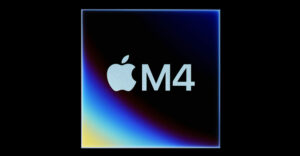
Apple and Microsoft are competitors, and while both companies are clearly more concerned with Google than each other at the moment, they serve as a great example of why good, well-funded marketing is important.
Apple leads the world in the art of crafting perceptions. Though it has a market share that is near insignificant against Windows — even taking the iPad into account — the perception driving the two companies’ stock valuations has Apple solidly in the lead and doing impressive damage.
This is a lesson that HP will need to fully understand as it brings its soon-to-be-released TouchPad to market, because this year, it may be the only company that can challenge what Apple is doing to the tablet — turning it into an iPad market like it did with the iPod.
In other words, HP may be the only thing preventing the iPad from iPoding the tablet market, but if they don’t understand Apple’s secret weapon, then they — and any other company that tries this — will lose.
I’ll explore that and close with my product of the week: a laptop (and I use the word loosely) that is probably both the coolest and most expensive you can buy in the world and, surprisingly, while its insides come from HP, its outsides come from a fantasy world like Barsoom.
It is the laptop that Edger Rice Burroughs or Jules Verne would have designed, and I lust for it in the worst possible way.
Apple’s Big Advantage
It is hard not to look at the excitement surrounding the iPad and not conclude that the era of the PC is over. Lines form to buy it, one child sold his kidney to get one, Oprah Winfrey calls it her favorite product of all time. It truly is amazing — but most amazing is that the category was dead before Apple entered it.
What is also amazing is that Steve Jobs had called the idea of a tablet stupid before he brought the iPad out, just as he had done with a variety of other successes (see Steve Jobs’ 6 Sneakiest Statements). The guy is amazing. He regularly goes on record saying that things his company has under development are stupid, and then brings those things out to a market filled with dimwitted people (and I include myself at times) who don’t seem to remember what he said. He seems to really understand how our heads are wired.
Apple’s greatest asset is it manages perception better than any other company in the world. For instance, even though Macs clearly do catch viruses, Apple’s policy is to pretend it isn’t a major problem, and this effectively propagates the myth that Macs are virus-free.
What appears to some as excessive Apple control is part of this, and the company religiously controls an ever-increasing amount of its customers’ experience and dialogue. At times, this has come close to being dangerous (like when iPods started catching fire).
This control even exceeds its desire for low costs because, in many cases, if you have a problem with one of Apple’s products, it would rather give you a new one than allow you to complain about the problem. While this can seem to some as less than honest, the alternative with Apple competitors is likely charges and aggravation that an Apple customer in the same situation doesn’t incur.
In short, Apple customers are OK with this kind of coverup because, at the end of the day, they just want their product to work — and that coincides with Apple’s goal to create the impression that its products never break.
Now, let’s be clear, I’m not really bad-mouthing Apple here. Apple customers are satisfied with this approach and test to be the most loyal customers in its segment; and don’t forget that Apple is considered the company of the decade.
A story about Steve Jobs on the coverof latest worldwide shipment and installed base report. IDC is the premier source of numbers for the technology industry. The perception is that Apple is kicking Microsoft’s butt, but the reality is a bit different.
Take, for instance, World Wide Client and Server Operating Environments (basically a report of all operating systems sold): Apple outgrew Microsoft 28.2 percent to 14.7 percent — kicking butt, right? True, until you look at the numbers sold.
Apple shipped around 15 million licenses on and off hardware (PCs and tablets) in 2010; Microsoft 215 million. Oh, and there were around 100 million additional copies of Windows stolen. In short, Microsoft loses more than six times more copies of Windows than Apple sells Macs and iPads combined.
OK that is historical — how about forecast? Let’s jump ahead to 2015. According to IDC, Microsoft will sell around 370 million copies of Windows that year, and have about 152 million stolen (no wonder it is upset with China), while Apple will sell an impressive 27 million Macs and iPads — or still about 1/6th what Microsoft will lose to theft alone.
So, if it weren’t for Apple’s excellent and well-funded marketing, it would be far less significant — at least as a Microsoft competitor. In many ways, Apple’s competitors are hamstrung when it comes to challenging its dominance.
Their marketing groups aren’t allowed to call Apple on false claims (likely because it doesn’t do much good), or Apple uses its power to scare the retailers into stopping the attack.
Microsoft, in particular, has been unusually timid as a company in terms of going head to head with Apple, even though its Windows marketing team is one of the strongest in the industry.
Before moving on to HP, let me leave you with one other data point. By 2015, according to IDC, there will be nearly 123 million Macs and iPads in use — an impressive number. However, Windows will have nearly 2 billion copies in use, with about a quarter stolen. To Microsoft, Windows pirates are a vastly bigger problem than the Mac is, and that likely is what dictates its focus. The lesson to walk away with is Steve Jobs’ skill is putting his reality distortion field over all of us. That is his WMD, and if you ignore it, he will mop the floor with you.
The real reality is that piracy is a bigger problem for Microsoft by far than Apple is. Apple’s alternative reality is that the opposite is true. The interesting thing is that most of us think we live in Apple’s alternative reality.
Wrapping Up: Lesson for HP’s TouchPad
HP is bringing out its TouchPad in a few weeks. This product has been a ground-up attempt to challenge the iPad this year for tablet dominance.
Right now, much as it was with the iPod, folks don’t say they want a tablet — they say they want an iPad, and nothing else is selling much volume in this class.
The TouchPad is good, arguably the best challenger so far brought to market, but that will make no material difference if people ask for an iPad by name. To be successful, HP will have to change that one important dynamic, do what Microsoft failed to do with the Zune, and get people to consider iPad alternatives.
If they can’t, they will have wasted a lot of money to get on a list with a lot of other companies that have failed to compete with Apple’s mastery of perceptions. You don’t bring a knife to a gunfight; you don’t take on Apple with a limited marketing budget.
Product of the Week: Victorian Laptop
 There are few things in this world I want that I don’t own. I’m fortunate that my tastes do match my budget — though, at times, it is a very close thing. It makes it a bitch to buy me gifts, or so my wife says.
There are few things in this world I want that I don’t own. I’m fortunate that my tastes do match my budget — though, at times, it is a very close thing. It makes it a bitch to buy me gifts, or so my wife says.
However, one rare thing that is on my list is the Victorian Laptop by Datamancer. At its heart, it is an HP laptop, but its soul comes from the same kind of thinking that created the Steampunk alternative future.
This product comes from an alternative world where transistors were not created and where airships flourished, where brass, wood and natural fibers rather than stainless steel, graphite and plastic rule. Where steam power is the mode of travel — not gasoline — and sexy is less skin and more imagination.

Expensive — oh yes. At around US$5,500, it is the most expensive laptop on the market at this performance level by a factor of at least 5x. But you don’t buy one of these as a work tool — you buy one of these because you want to let your imagination free. And maybe just a little bit, because you want your friends to be breathless for just a moment.
This is the concept of a magical product taken nearly to its financial extreme. The Victorian Laptop from Datamancer — and everything the guy does, really — puts a smile on my face and a bit of lust in my heart, and that is why (since he is now taking orders) it is my product of the week.






















































